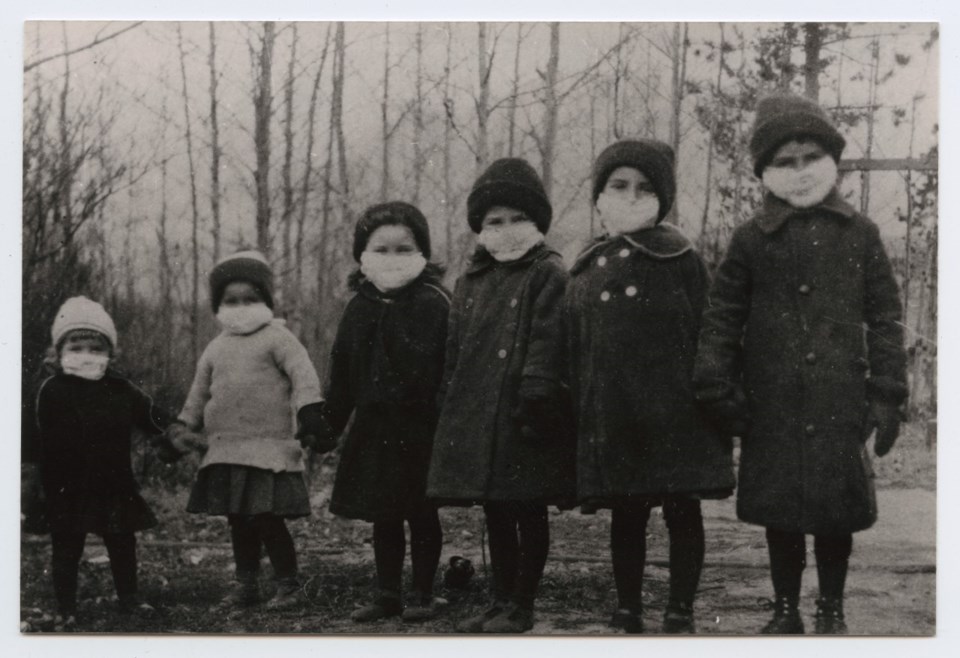CANMORE – Calling on Bow Valley residents to help capture the experience of the COVID-19 coronavirus pandemic, the Canmore Museum and Geoscience Centre is asking people to share their images and stories of the crisis.
Capturing these artifacts plays a pivotal role in understanding how the culture of the Bow Valley is shifting in the face of the pandemic, said Canmore Museum curator Amy Herr.
“This is such a significant event in the history of humanity,” Herr said, explaining how meaningful it would be to capture the disruption of COVID-19 in real-time for future generations.
“I’m sure as the weeks go by, things are going to get more intense, not less, so there’s also more opportunities in the future.”
The inspiration to capture the experience of life in the Bow Valley during the COVID-19 pandemic came about through discussions between staff, Herr said. She added that she was struck by the idea of contemporaneous collecting – a practice where museums collect things while an event is happening and material artifacts are being produced.
After the historic event has come to an end, be it 15, 20 or 30 years down the line, curators can then explore the collection that has been amassed and determine what is significant to keep as an artifact.
“This [COVID-19] is such a collective experience. All of Canmore, all of Alberta, all of Canada, everywhere in the whole world is experiencing this at the same time,” Herr said.
“We wanted to open that up to our community to figure out what they thought was important to keep and how they would want the museum to represent their experience and their community’s experience with this pandemic.”
Contemporary collecting is also valuable, she said, because it allows objects to be associated with stories.
At the Canmore Museum when people donate objects, Herr said she tries to conduct an oral interview about why the object was worth keeping, the memories they associate with it, who it was used by and how they came to acquire the item.
“That helps us to make that connection between story and object,” Herr said.
“I think objects can be a really strong mnemonic device or representation of memory. When museums keep a wide variety of objects and archival material from their community that can be a representation of the broader experience of those community members.”
Herr said she hopes that once people are settled and able to feel safe there will be more opportunities for people to share what has mattered to them during the COVID-19 crisis.
“Objects are a good way for us to make connections with our past selves and our own memories, but also identifying with the experiences and memories of others,” Herr said.
By seeing and interacting with objects that are recognized, people can identify with them, Herr said, or if they are unfamiliar with an artifact the experience can serve as a way to learn more about it and the people who used it.
Herr said museums play an important role in collecting artifacts to create a conversation about ourselves and our communities while creating a platform to discuss issues that matter.
“This event is changing the face of Canmore for sure, but also the country that we live and the world,” Herr said.
“Museums can be a place to keep those memories, but those memories aren’t important unless we talk about them.”
Donations to the museum from the COVID-19 pandemic are a public service, she said, because these items will enable the museum to keep and preserve collective memories of the experience while recording Canmore's evolving community identity.
“We definitely encourage people to get in touch with us and tell us what they think is important, what their experiences are and share photos and memories about what it’s been like for them,” Herr said.
“I think we’re going to look back on this time as a very formative experience in our identity."
The museum has been temporarily closed to the public and will reopen as more information becomes available and it is deemed safe to do so.
Those interested in sharing their stories and photos of surviving the pandemic can email [email protected], or call Herr at 403-678-2463 and choose extension five.




